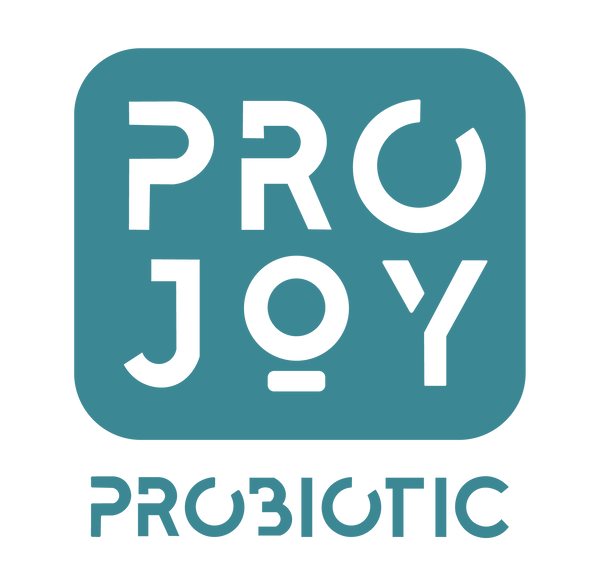Probiotics and Prebiotics: What’s the Difference and Why You Need Both
Share
When it comes to gut health, both probiotics and prebiotics play essential roles. While probiotics are the beneficial bacteria that live in your gut, prebiotics are the fibers that feed them. Together, they form a powerful team that promotes a healthy gut microbiome, supports digestion, boosts immunity, and improves overall well-being. But what exactly is the difference between the two, and why do you need both for optimal gut health?
In this post, we’ll break down the difference between probiotics and prebiotics and explore how they work together to support your gut health.
What Are Probiotics?
Probiotics are live beneficial bacteria that reside in your gut. They play a crucial role in maintaining the balance of your gut microbiome, which consists of both good and bad bacteria. A balanced microbiome supports various bodily functions, including digestion, immune response, and even mental health.
1. How Probiotics Work
Probiotics help keep the gut microbiome balanced by preventing the overgrowth of harmful bacteria. They aid in digestion, help absorb nutrients, and produce essential compounds like vitamins and short-chain fatty acids (SCFAs), which support overall health.
2. Health Benefits of Probiotics
- Improved Digestion: Probiotics help break down food and promote smooth digestion, reducing bloating, gas, and constipation.
- Boosted Immunity: A large portion of the immune system is located in the gut. Probiotics strengthen the gut lining, preventing harmful pathogens from entering the body and supporting immune function.
- Better Mental Health: The gut-brain axis connects gut health to mental well-being. Probiotics play a role in producing neurotransmitters like serotonin, helping regulate mood and reduce symptoms of anxiety.
Common sources of probiotics include fermented foods like yogurt, kefir, sauerkraut, and supplements.
What Are Prebiotics?
Prebiotics are non-digestible fibers found in certain foods that feed the beneficial bacteria in your gut, helping them grow and thrive. Unlike probiotics, prebiotics aren’t live bacteria. Instead, they act as food for probiotics, ensuring that the beneficial bacteria in your gut have the nourishment they need to maintain balance.
1. How Prebiotics Work
Prebiotics pass through the digestive system without being broken down. Once they reach the colon, they are fermented by beneficial bacteria, stimulating their growth. This fermentation process also produces SCFAs, which have anti-inflammatory and immune-boosting properties.
2. Health Benefits of Prebiotics
- Gut Health Support: Prebiotics help maintain a healthy balance of gut bacteria by feeding probiotics, which supports digestion and reduces digestive discomfort.
- Enhanced Nutrient Absorption: By promoting the growth of beneficial bacteria, prebiotics help improve the absorption of essential nutrients like calcium, magnesium, and iron.
- Improved Immune Function: Prebiotics support the production of SCFAs, which have anti-inflammatory effects and help strengthen the immune system.
Foods rich in prebiotics include garlic, onions, leeks, asparagus, bananas, and whole grains.
Probiotics vs. Prebiotics: What’s the Difference?
While both probiotics and prebiotics are essential for gut health, they serve different purposes:
- Probiotics: Live beneficial bacteria that improve gut health by balancing the microbiome.
- Prebiotics: Non-digestible fibers that feed probiotics, ensuring the beneficial bacteria thrive.
Think of probiotics as the “good guys” in your gut and prebiotics as their “fuel.” Without prebiotics, probiotics would struggle to survive and do their job effectively.
Why You Need Both Probiotics and Prebiotics
For optimal gut health, it’s important to include both probiotics and prebiotics in your diet. Here’s why:
1. They Work Synergistically
Probiotics need prebiotics to thrive. Prebiotics provide the nourishment probiotics need to maintain a balanced gut microbiome. Without prebiotics, the effectiveness of probiotics would be limited.
2. Better Digestive Health
Probiotics help improve digestion by breaking down food, while prebiotics support the growth of these beneficial bacteria. Together, they enhance digestion, reduce bloating, and improve nutrient absorption, leading to better overall digestive health.
3. Improved Immune Function
Both probiotics and prebiotics play a role in strengthening the immune system. Probiotics help protect the gut lining from harmful bacteria, while prebiotics promote the production of SCFAs, which reduce inflammation and boost immunity.
4. Enhanced Mental Well-Being
The gut-brain connection is influenced by the balance of gut bacteria. Probiotics support the production of mood-regulating neurotransmitters, while prebiotics provide the nourishment needed to sustain this process. Together, they contribute to better mental health and emotional resilience.
How to Include Probiotics and Prebiotics in Your Daily Routine
Incorporating both probiotics and prebiotics into your diet can be simple. Here’s how you can do it:
1. Eat Probiotic-Rich Foods
In addition to supplements, consuming foods rich in probiotics is a great way to support your gut health. Include fermented foods like yogurt, kefir, sauerkraut, kimchi, and miso in your diet.
2. Add Prebiotic-Rich Foods to Your Diet
Prebiotics are found in a variety of fiber-rich plant foods. Garlic, onions, leeks, asparagus, and bananas are excellent sources of prebiotics. Incorporate these foods into your meals to provide your probiotics with the nourishment they need.
3. Consider a Synbiotic Supplement
Synbiotics are supplements that combine both probiotics and prebiotics in one formula. These supplements ensure that you’re getting the right balance of both to support your gut health and overall well-being.
Conclusion
Probiotics and prebiotics are both essential for maintaining a healthy gut, but they serve different roles. Probiotics are the beneficial bacteria that keep your gut balanced, while prebiotics provide the fuel they need to thrive. Together, they create a symbiotic relationship that promotes better digestion, boosts immunity, and supports overall well-being.
By including both probiotics and prebiotics in your diet, you can ensure that your gut stays healthy, balanced, and functioning optimally.
